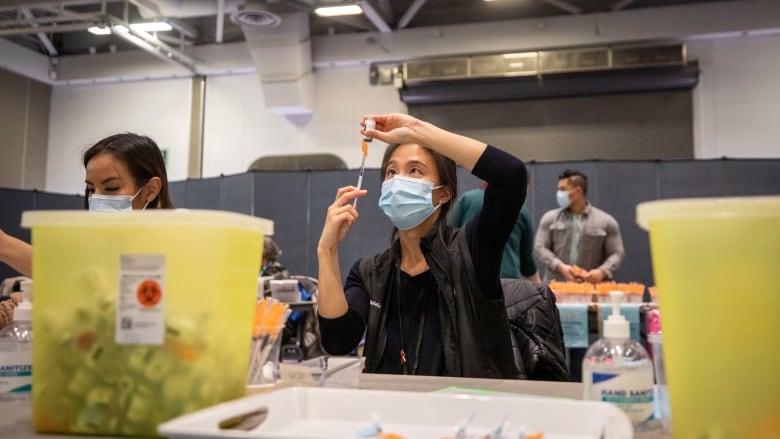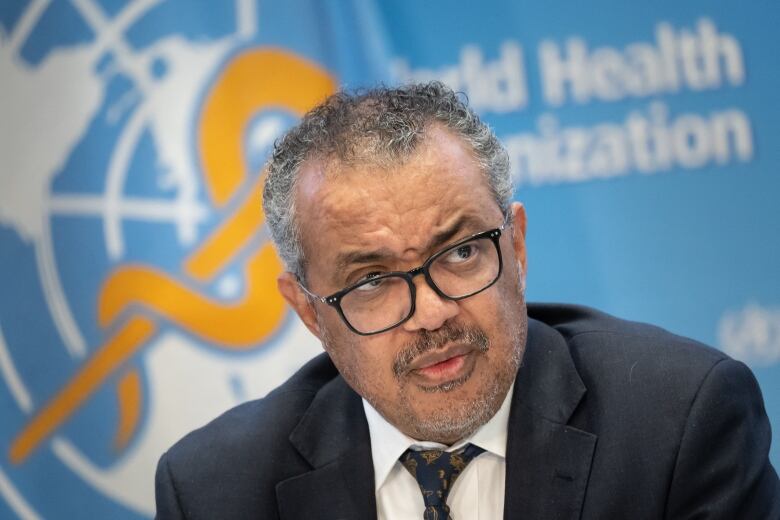WHO recommends COVID-19 boosters for high-risk adults 6-12 months after last dose
Healthy children and adolescents 'low priority' for additional boosters: WHO

The World Health Organization has tailored its COVID-19 vaccination recommendations for a new phase of the pandemic, suggesting that healthy children and adolescents may not necessarily need a shot but older, high-risk groups should get a booster between six-to-12 months after their last vaccine.
The UNagency said the aim was to focus efforts on vaccinating those facing the greatest threat of severe disease and death from COVID-19, considering the high-level population immunity worldwide due to widespread infection and vaccination.
"The revised roadmap re-emphasizes the importance of vaccinating those still at-risk of severe disease," said Hanna Nohynek, chair of the WHO's Strategic Group of Experts on immunization, which made the recommendations.
The health agency defined high-risk populations as older adults, as well as younger people with other significant risk factors. For this group, the agency recommends an additional shot of the vaccine either six or 12 months after the latest dose, based on factors such as age and immunocompromising conditions.
The WHO did not recommend additional boosters beyond a third dose for medium-priority groups, which it defined as healthy adultsunder the age of 50 to 60 and children and adolescents with comorbidities,due to "comparatively low public health returns" but said additional boosters are safe for this group.
Meanwhile, it said healthy children and adolescents were "low priority" for COVID-19 vaccination, and urged countries to consider factors like disease burden before recommending vaccination of this group. It said the COVID-19 vaccines and boosters were safe for all ages, but the recommendations took into account other factors like cost-effectiveness.

End of pandemic 'in sight'
The WHO said in September last year that the end of the pandemic was "in sight." In a briefing on Tuesday, the agency said its latest advice reflected the current disease picture and global immunity levels, but should not be seen as long-term guidance over whether annual boosters would be needed.
Thecommittee also called for urgent efforts to catch upon routine vaccinations missed during the pandemic and warned of a rise in vaccine-preventable diseases like measles.
The WHO recommendations come as countries take differing approaches. Some high-income countries like the United Kingdom and Canada are already offering those at high-risk COVID-19 boosters this spring.
Canada's National Advisory Committee on Immunization (NACI) recently calledfor high-risk individuals to get another COVID-19 booster shotsix or more months from the last COVID-19 vaccine dose or SARS-CoV-2 infection, whichever is longer for people at a higher risk of severe illness.
That includes:
- Adult residents of long-term care homes and other congregate living settings for seniors or those with complex medical care needs.
- Adults 18 and up who are moderately to severely immunocompromised, either due to a medical treatment or underlying health condition.
- Adults 65 to 79, particularly if they don't have a known prior history of SARS-CoV-2 infection, plus anyone 80 and up.
Bivalent, Omicron-containing, mRNA-based COVID-19 vaccines are the "preferred" option for booster shots, NACI wrote.
NACI didn'trecommend an additional spring booster for people in the general population who've already received all their previous recommended doses, Chief Public Health Officer Dr. Theresa Tam wrote in a statement on social media on March 3.
With files from Lauren Pelley, CBC News













_(720p).jpg)


 OFFICIAL HD MUSIC VIDEO.jpg)
.jpg)



























































































